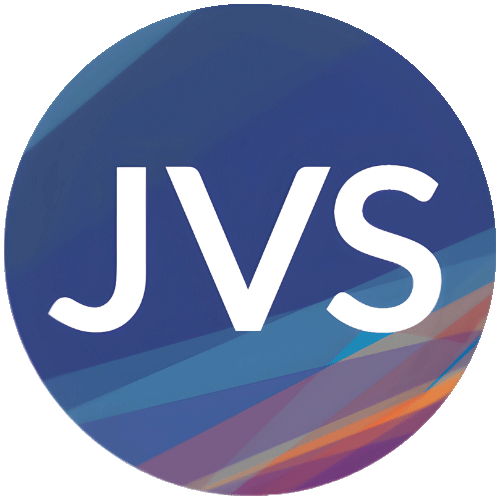
Jeff Gentry
Senior Director of Disability Services, JVS Boston

David Estrada
Disability Program Manager, Spaulding Rehabilitation Network
Of all the positive experiences young people will have with summer jobs around Greater Boston this year, some of the most impactful will be the paid work opportunities secured by local high school students with disabilities.
Getting a paid job during high school is an important predictor of whether a person with a disability will successfully participate in the workforce as an adult. In fact, students with disabilities who are introduced to paid employment before graduation are 19 percent more likely to get a job after high school. Moreover, connecting young adults with disabilities to paid employment in their high school years can reduce or eliminate the need for costly transition-to-work interventions later in life.
According to data from the People with Disabilities in the Massachusetts Labor Force, unemployment rates among individuals with certain disabilities have increased significantly in recent years. In 2023, 14 percent of people with an independent living difficulty were unemployed and actively looking for work. Overall, unemployment rates for people with disabilities have doubled—from 3.5 percent in 2019 to 7 percent in 2023—highlighting the urgent need for early employment pathways.
Kaleef Jones of Randolph is one of many success stories that show how the right initiatives can change the unemployment statistics for people with disabilities. While attending Randolph High School, Kaleef participated in a JVS Boston’s Transitions to Work session hosted by CVS Health. Kaleef leveraged this opportunity to secure a paid job at a CareOne nursing facility where he continues to work successfully until this day. Kaleef’s positive experience with early support and workplace integration, starting in high school, epitomizes how programs like Transitions to Work help students improve their communication, problem-solving skills, and adaptability, transforming not just how others perceive their potential in the workforce, but reshaping how they see themselves and their capabilities.
Parents also play an essential role in introducing students with disabilities to new job opportunities. Meghan LaTerza’s experience in a Transitions to Work Food Industry Training helped her develop and demonstrate skills, and build confidence to overcome her mother’s concerns about Meghan traveling to Boston and working evening shifts in the kitchen. Meghan has worked successfully as a Food Aide at Spaulding Rehabilitation Hospital since that time, and she is strengthening her food service skills in hopes of growing into new roles. Research shows that parental expectations of employment can increase the employment engagement rates of young people with disabilities by up to 21 percent.
Meghan and Kaleef are also a part of the Career and Community Access Program that JVS operates in partnership with House of Possibilities (HOPe). This initiative provides an array of career coaching, social events, and personal development opportunities that support individuals as they pursue fulfilling lives. By connecting with programs like those offered by JVS Boston and similar organizations, families can help set their children on a path to meaningful employment and growing careers.
As cities like Boston and businesses nationwide mark the 35th anniversary of the Americans with Disabilities Act this summer and take meaningful steps toward greater inclusion (such as offering trainings and certifications focused on disability awareness), it’s crucial to remember that high school students with disabilities must be central to these efforts.
Unlike models that steer people with disabilities into segregated or specialized workplaces, JVS helps young people start careers by securing jobs in inclusive, real-world settings, from grocery and retail stores to hospitals and nursing homes, working alongside peers without disabilities and earning equal pay and opportunities. Starting as early as age 14, in accordance with Massachusetts law, JVS partners with schools in underserved cities like Boston, Brockton, Everett, and Randolph to connect students with subsidized summer jobs and career exploration opportunities, laying the foundation for long-term impact.
Since it’s opening in 2019, the JobLab at Spaulding Rehabilitation Hospital has been a key job training center for the young adults with disabilities that JVS serves and has resulted in job placements at Spaulding locations in Brighton, Cambridge, and Charlestown. It only makes sense that Spaulding, which clinically treats individuals with temporary and permanent disabilities, offers workplace opportunities for the people that it serves. In tight labor markets or positions that often experience high turnover, Spaulding has found that trainees like Meghan have higher employee retention rates. Partnering with JVS to provide training opportunities for young people with disabilities has turned into a business solution for Spaulding and has helped demystify and destigmatize disability in the workplace.
When high school students with disabilities apply for part-time jobs this summer, or weekend positions throughout the school year, employers should give them a chance. As JVS and Spaulding have learned, young adults with disabilities often thrive in employment, addressing vital hiring needs and creating greater economic opportunity for us all.
This article also appears in the Boston Business Journal, which you can read here: https://www.bizjournals.com/boston/news/2025/09/26/summer-jobs-for-youth-with-disabilities-are-key-to.html
